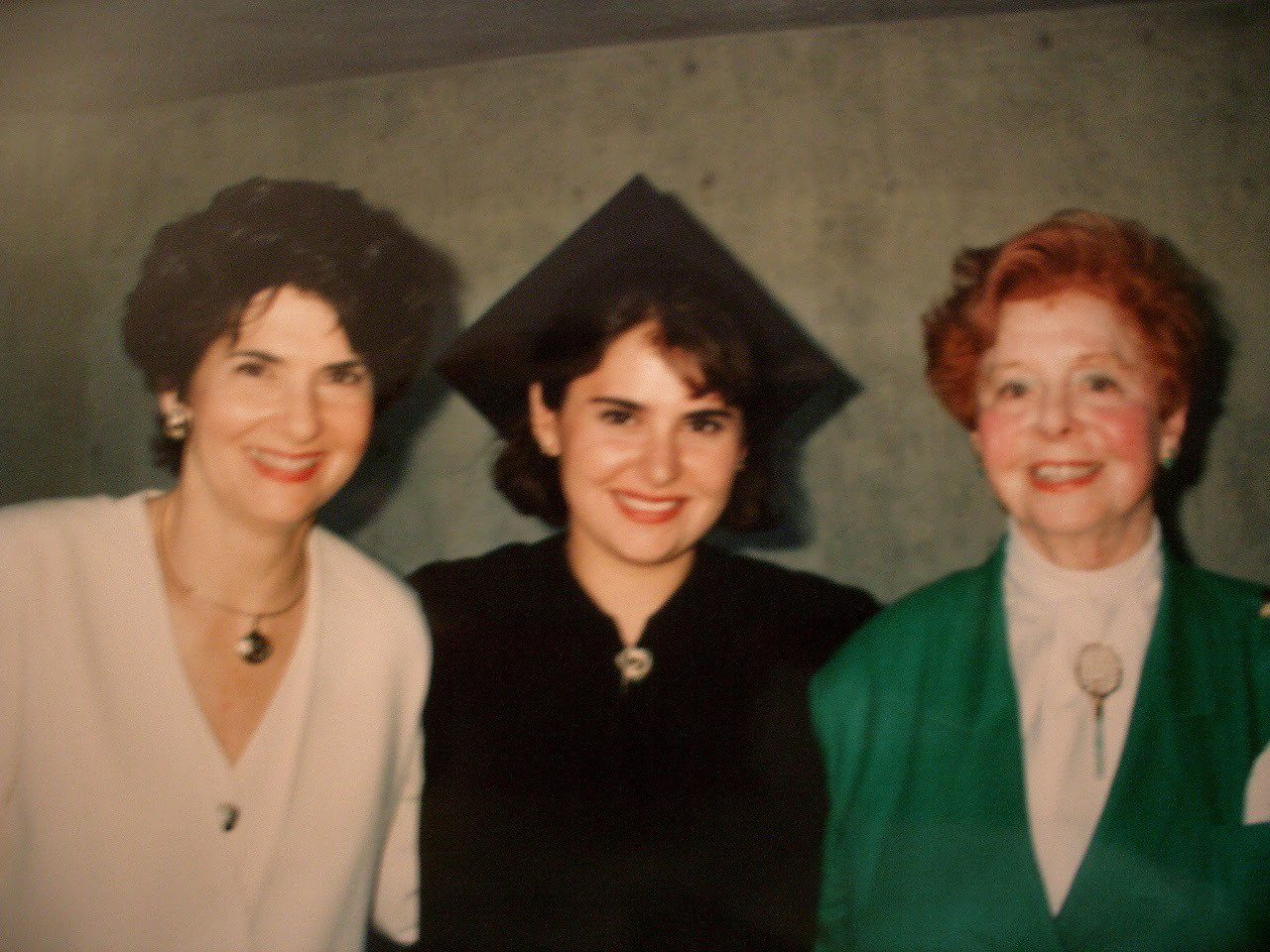UC Law SF Graduates Three Generations of Women Lawyers from One Family

Anne Gyemant Paris, center, flanked by her mother, Judge Ina Gyemant, left, and grandmother Mildred Levin, right. All three women graduated from UC Law SF.
Trailblazing attorney Mildred Levin ‘34, who died in 1997, entered law school at the age of 19 and graduated in the top 10 percent of her class, one of only four women in UC Law SF’ Class of 1934. She inspired her daughter and granddaughter to practice law as well. To date, three generations of women in this family graduated from UC Law SF and made careers that positively impact the world.
Levin was a fierce advocate for women’s rights. One of her proudest moments was when, in Rincon vs. Pineda, 1975, she objected to the court’s customary warning to juries in rape cases: “You must view with caution the testimony of a female prosecuting witness. Rape is a charge easily made and difficult to defend against.”
“I argued to the Court that women who had been raped should not be assumed to be liars and emphasized that it was a matter of equity that the Court look to penalize the rapist and not the victim,” she wrote. Levin’s argument changed state law. “The Supreme Court of California, by unanimous decision, eliminated the cautionary instruction making California the first state in the Union to rid itself of this degrading law.”
Like her mother before her, Ina Gyemant took advantage of Hastings’s excellent legal education. Three decades later, when she attended law school, not much had changed. In the class of 1968, only 16 students were women, while 370 were men.
“The men in my class kind of stayed away from us,” Gyemant recalled. “My mom had a similar experience. One of my professors didn’t like women on campus. Early in my first year, I raised my hand in his class and well, I don’t remember what he said but it was a put-down. I didn’t raise my hand after that.”
While she and her few female classmates took the long view, Gyemant said, “It wasn’t in our vocabulary to be offended.” However, they soon learned bias extended into the professional world. “I could have papered a whole wall with the rejection letters I got. Back then, everyone said they wanted to hire women but really, that meant just one per law firm,” she said.
Finally, she began a clerkship with Chief Justice Roger J. Traynor, and then became a research attorney for the California Supreme Court. From 1972 to 1981, she was a Deputy California Attorney General in the criminal division. In 1980, after a close election against three men, she was elected to the Municipal Court and subsequently elevated to the Superior Court in 1987.
Gyemant has always advocated for children. As Presiding Judge of the Family Court, she founded a non-profit, Kid’s Turn, to give children a place to learn about divorce, and established the YTEC Youth Treatment and Education Center for juveniles. The Rally Project for parents in high conflict, such as domestic violence situations, was also her brainchild.
Ina’s daughter, Anne Gyemant Paris, graduated from UC Law SF in 1998. By then, she said, “I did not experience any overt gender discrimination in law school in the way my mother and grandmother did.”
Now in private practice in San Francisco, Gyemant Paris’s law firm Gyemant Paris Law, focuses exclusively on surrogacy, fertility, and adoption issues. She created a pro-bono program in the San Francisco Superior Court for victims of domestic violence, while working as the first legal director of La Casa de las Madres. She also launched the San Francisco Break the Cycle, a program that provides legal advice on restraining orders, family law, immigration, and employment issues for women in crisis.
In the last line of her autobiography, Levin declared that she wanted “to be remembered as a person who tried to make this world a little better place.”
Today at Hastings, the Mildred W. Levin Scholarship is awarded to an exceptional student with financial need who exemplifies “the ideals represented by Levin: intellect, determination, compassion and integrity.” Though recipients are selected by the Queen’s Bench Bar Association, Gyemant and Gyemant Paris, both Past Presidents of Queen’s Bench (as was Levin), remain involved in the process.
“I have four granddaughters,” Gyemant said. “I hope at least one of them is a future lawyer.”